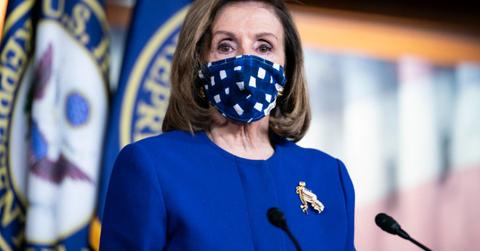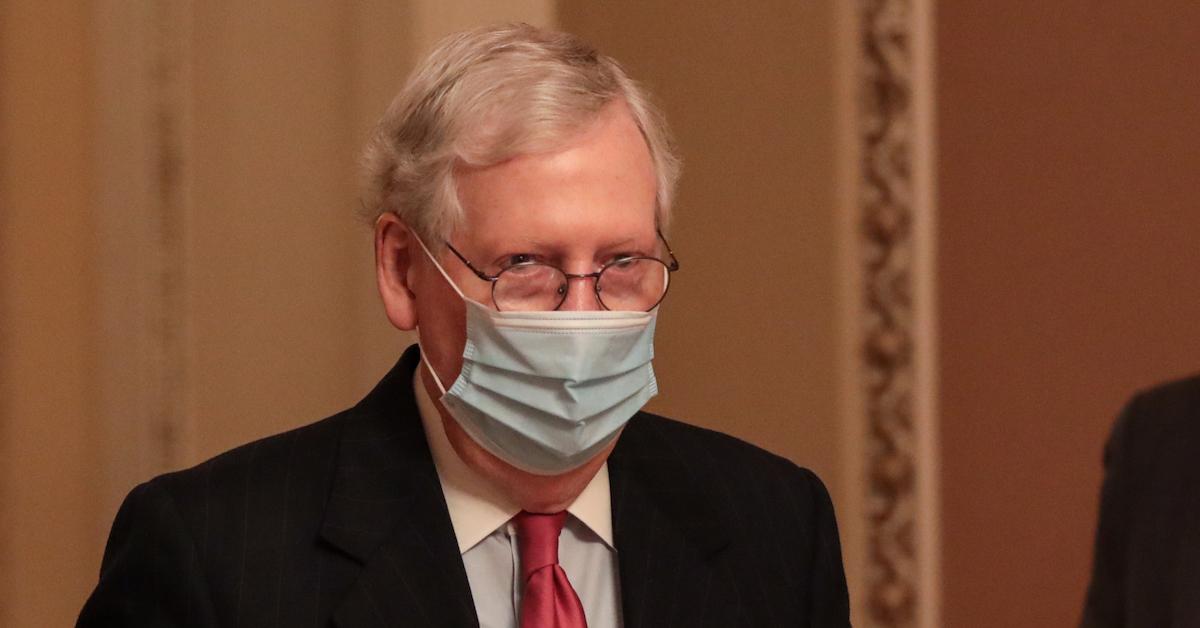If You Owe Child Support, Will You Still Get a Stimulus Check?
The second stimulus check differs from the first in several ways, but will it be subject to garnishment for child support?
Dec. 23 2020, Published 10:47 a.m. ET

House Speaker Nancy Pelosi during negotiations for the second stimulus package.
Now that Congress has passed a bill for a second round of coronavirus relief, Americans are wondering if and when they will receive a stimulus check (and for how much). The second round of direct payments will be different from the first in several ways. It is the second-largest piece of recovery legislation ever passed in the U.S., after the CARES Act.
The first set of direct payments from the COVID-19 economic relief plan last spring allowed for garnishment of stimulus checks to pay back child support. This will not be the case for the second set of stimulus checks, however. The IRS will not withhold stimulus payments from individuals who owe child support.

Sen. Majority Leader Mitch McConnell
While the CARES Act provided a $1,200 direct payment to most individual adults and $500 per dependent child, the new stimulus package provides for a flat $600 payment for every eligible adult whose adjusted gross income (AGI) is $75,000 or less and $600 for each dependent. This would mean a typical family of four will receive a total of $2,400 in the second round of stimulus payments.
Will the second stimulus check be affected by wage garnishment?
The COVID-Related Tax Relief Act states clearly that the second round of stimulus payments is not subject to garnishment by debt collectors or creditors. In addition, stimulus money can’t be lost due to bankruptcy proceedings.
Wage garnishment occurs when a court orders a person’s salary or other payments to be withheld to pay other debts owed. The most common reasons for wage garnishment include child support, unpaid taxes, consumer debts, and student loans.
Will the second stimulus check be affected by tax debt?
Tax debt, student debt, and child support will not take stimulus money from individuals in this case. “Unlike typical tax refunds, these payments won’t be subject to garnishment in most cases, including student debt and state debt,” reported the Wall Street Journal.
Forbes reported that there are no offset provisions within the new coronavirus tax relief bill. Even if, under normal circumstances, the government could seize your money to pay back tax debt, the second round of stimulus checks do not fall under that category.
The way the funds are coded when they hit your bank account should notify the bank that this money is not available for garnishment to pay any debts. “Now, payments are to be coded in an obvious manner so that banks would not allow payments to be seized to satisfy certain legal obligations,” (via Forbes).
In addition, the new stimulus payments will not be considered income by the IRS, which means you cannot be taxed on that money. “That also means a direct payment you get this year won't reduce your tax refund in 2021 or increase the amount you owe when you file your 2020 tax return,” according to CNET.
The IRS will examine only your 2019 federal tax return to determine your eligibility for the stimulus check and how much money you are entitled to receive. Adjusted gross income above $75,000 per individual means the stimulus payment will be gradually phased out (reduced gradually depending on how much you earn above that threshold).
The stimulus amount for those individuals earning above the $75,000 AGI threshold will see their payment decreased by $5 for every $100 over the threshold.
